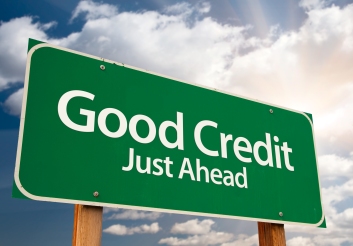5 Ways To Improve Your Credit Score
 Improving credit scores is quite a tricky thing. Based on your credit score a lender will decide if they want to loan you money. It provides insights into your financial situation and help lenders determine your ability to afford and pay off a loan. Sometimes a good credit score can help you in getting a lower interest rate.
Improving credit scores is quite a tricky thing. Based on your credit score a lender will decide if they want to loan you money. It provides insights into your financial situation and help lenders determine your ability to afford and pay off a loan. Sometimes a good credit score can help you in getting a lower interest rate.
It is a slow and deliberate process that takes patience so don’t expect fast results. In fact, if you come across some advice that promises fast improvements in your credit score there is a high chance that it will backfire and set you further back. To improve your credit score, first, repair the damages in your score. The trick is to remain patient, and slowly build up your score and remain consistent.
Here are some pointers that could help you to improve your credit score in the long run.
1) Check on credit cards
It is important to review your credit card usage. Check how much credit you use as a percentage of your maximum allowed credit. The optimum number is around 30%. Even if you clear your balance fully every month, using up more credit could count against you. One strategy to overcome this is to pay your balance off in full before your statement date. If this is not possible then try to keep a very low balance at statement date. Remember to receive regular credit reports to check on your credit spending. Usually this is free and all you have to do is to request a copy.
2) Clear balances
It is quite common to rack up small credits across multiple cards. It is important to clear these up to see a good credit score. It is a better option to spend a certain sum on one card rather than spreading the bill across two cards with small amounts of credit. Credit scores are affected if you have multiple unpaid balances, even if the sum on each card is low. Clear off these outstanding balances and then pick one or two cards, preferably with good interest rates, and use that. Remember to clear your balance on all of the cards that you own or use. Set up payment reminders if necessary. Unpaid cards always hurt your credit scores.
3) Don’t erase good records
A lot of people make the mistake of trying to clear records of paid credit purchases. If you have bought something you do not want anyone to know, or have not paid in time, that might be something you want to get removed from record once you clear the payment, and they usually clear off after seven years anyway. However, if you paid the credit in full then it is a good credit that should not be removed from your credit record. Fully paid credit shows that you are good with credit, and it will help you get better scores. Some people often assume that closing credit cards may increase one’s credit score, but keep in mind that it’s never the case. Closing credit cards does not increase your credit score and neither will it erase the credit score.
5) Pay bills on time
Paying your bills late is one of the most damaging things you could do to your credit score. Bill payments are vital to your credit score. Do not ignore your bills even if you are saving up to buy something big (like a car, or a house). Even a small dip in your credit score can hurt your chances of getting that loan for your car or house.
Something as small as a gym membership fee or even a late fine from the library, if not paid in time, can disparage your score.
5) Don’t apply for too much at once
It’s a twofold advice: don’t apply for too much credit within a short time, and don’t apply for multiple cards that you wouldn’t use much. Applying for too much money is damaging to your credit score and will definitely appear on your report. It indicates that your financial status might be at risk, which could discourage a lender. Even if you are in need, stretch out the applications as much as you can. Using your card in places that indicate financial risk (like divorce attorney or pawnshops) should also be avoided if you want to improve the credit score.
The amount of credit cards or credit accounts should depend on one’s specific financial situation, spending behavior, financial goals and how one responsibly manages their credit. Keep in mind having too many accounts could become difficult to diligently track credit activity.
Follow these tips to have a better shot at improving your credit score. Looking for more financial or real estate tips? Learn more here!